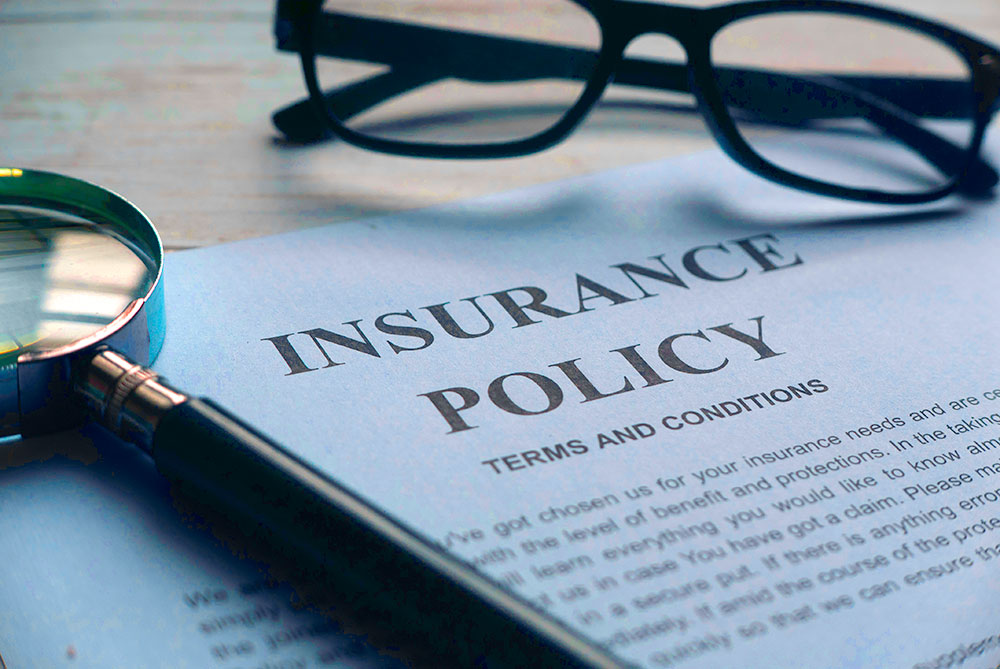Protecting Your Business With Contractor Insurance

Many states and cities require you to carry contractor insurance as a part of the licensing and permitting process. On top of that, many homeowners will only work with insured contractors. Insurance can give you the peace of mind that your business, and any employees you may have, are protected in case the worst should happen.
Here’s a brief explanation of what general liability insurance covers, as well as other types of contractor insurance you may want to consider:
What is General Liability Insurance?
This type of insurance can help protect you in the event of a third-party claim of property damage, injury, or business activity.
What Does General Liability Insurance Cover?
Property Damage
If you accidentally cause damage to a customer’s home during a renovation, such as to their furniture, your insurance can help cover the cost to repair or replace any items. It can also help protect you from any potential lawsuits as a result of this damage. (Please note: This will not cover any of your commercial assets. You’ll also need business property insurance.)
Bodily Injury
Even when taking every precaution, there’s still a chance that a homeowner can get injured when you’re working in their home. If this happens, insurance can help cover any related costs, whether covering medical costs or a lawsuit. (Please note: General liability will not cover you if an employee is injured. For this, you’ll need workers’ compensation insurance.)
Completed Operations Liability
If a project you completed in a customer’s home malfunctions in some way, such as a newly replaced roof leaks and causes water damage inside the home, general liability insurance can help cover the related costs. This includes both damages to the home and any potential legal costs.
Personal and advertising injury — If someone accuses your business of allegedly making false statements about another contractor or business, general liability can help cover your legal costs as well as any potential additional damages as ordered by the court.
How Much Does General Liability Insurance Cost?
What you end up spending on general liability insurance depends on a variety of factors, including:
- Policy size
- Business size
- Business location
- Claims history
- Policy limits
What Other Types of Contractor Insurance Might I Need?
Professional Liability Insurance
This type of insurance can cover you in the event of mistakes, negligence, breach of contract, or not completing a job on time.
Commercial Auto Insurance
This can help cover your vehicle if you use it for business purposes.
Commercial Property Insurance
This protects your business property in the event of an accident, weather, or other hazards. For example, if your inventory of cabinets is destroyed in a fire.
Builder’s Risk Insurance
This can help cover the costs of damage during a renovation caused by fire, weather, vandalism, and more.
Inland Marine Insurance
This type of insurance can be helpful if your business is transporting property or storing it offsite from your workplace.
What Happens When You File a Claim?
- Contact your insurance provider as soon as possible after an incident or complaint from a third party. They’ll provide the exact steps you need to follow and will set up an inspection if necessary. If a crime is a part of the claim, such as a robbery, you’ll also need to contact the police.
- Provide the necessary details. Depending on the circumstance, this information may vary, including your insurance account info, details of the injuries/damages, pertinent contact information, etc.
- Once filed, your insurer will provide you with a claim number and the name of the adjuster who will handle the claim. In the event there’s a lawsuit, you may also be assigned an attorney.
Mistakes to Avoid When Making a Claim:
- Not knowing your policy
- Waiting to contact your insurer
- Not making documentation of damages
- Discarding physical damage (ex. Throwing away damaged materials before inspection)
- Admitting you’re at fault
- Not advocating for yourself
Contact several insurers for quotes to find the best fit for both your business and your budget.
This article is not intended as legal advice. Please reach out to a professional to help with your specific insurance needs.
Blog Archives
No posts for Feb, 2025




